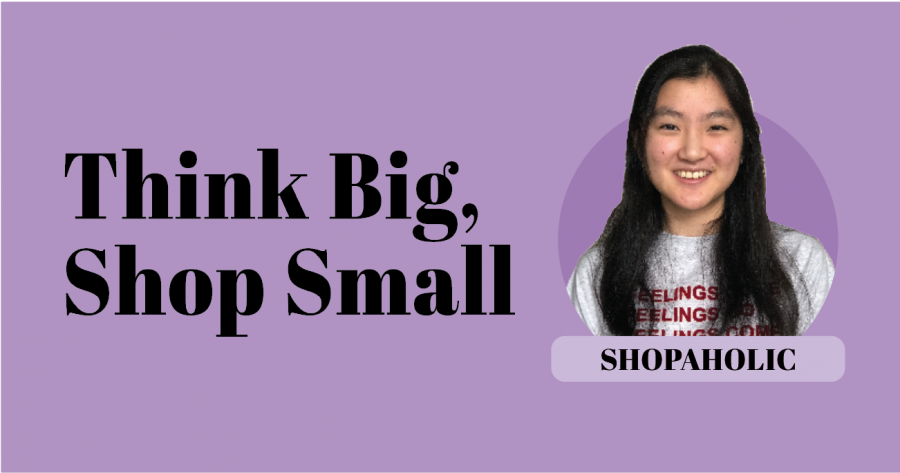I love shopping. Though I will admit that I spend most of my time browsing rather than actually making purchases, shopping has become a way to cope with stress or sadness. Although retail therapy may not be the most effective long-term solution to negative emotions, a study published in Psychology & Marketing found it can temporarily improve psychological well being. In these uncertain times, shopping can help people feel like they have more control over their lives.
During this pandemic, I can’t help but feel incredibly selfish when browsing through stationery products or eyeing a new pair of shoes. Frontline workers are sacrificing their lives to help others, thousands of people are dying every day yet all I’m doing is thinking about buying things I don’t even need. For me, shopping during quarantine has raised some important concerns. Companies are struggling to supply people with necessities, and I’m potentially putting delivery workers at an even higher risk of being exposed to COVID-19: should I really be turning to retail therapy in a time like this?
While it seems logical to stop making unnecessary purchases entirely, it’s also important to consider the repercussions on businesses—particularly the smaller ones. This isn’t to say large businesses aren’t grappling with the economic effects of the stay-at-home orders as well, but small ones are especially experiencing the brunt of COVID-19.
 According to Main Street America, almost 7.5 million small businesses in the United States may be at risk of permanent closure if COVID-19 persists for several more months. Furthermore, about 35.7 million Americans employed by small businesses are at risk of unemployment; clearly, these businesses are struggling to stay afloat in current conditions. Major retailers may not be going out of business any time soon, but that is a very real possibility for businesses with only a handful of employees.
According to Main Street America, almost 7.5 million small businesses in the United States may be at risk of permanent closure if COVID-19 persists for several more months. Furthermore, about 35.7 million Americans employed by small businesses are at risk of unemployment; clearly, these businesses are struggling to stay afloat in current conditions. Major retailers may not be going out of business any time soon, but that is a very real possibility for businesses with only a handful of employees.
To help these businesses without perpetuating the spread of COVID-19, see if they offer gift cards or certificates that can be used at a later time. By purchasing these gift cards, shoppers can provide businesses with some cash inflow for the time being. While this does take away some of the excitement and instant gratification of retail therapy, try to find ways to support small businesses without putting anyone at an increased risk of exposure to COVID-19. Down the road, once it’s safer for delivery workers, those gift cards can be used for a retail therapy session: it’s a win-win for everyone.
Of course, no one should feel obligated to spend their own money in a certain way, but for those who do have the ability to support small businesses, please consider doing so—and not only during this pandemic, but also once this is all over.
The views in this column do not necessarily reflect the views of the HiLite staff. Reach Wendy Zhu at wzhu@hilite.org































![What happened to theater etiquette? [opinion]](https://hilite.org/wp-content/uploads/2025/04/Entertainment-Perspective-Cover-1200x471.jpg)














































![Review: “The Immortal Soul Salvage Yard:” A criminally underrated poetry collection [MUSE]](https://hilite.org/wp-content/uploads/2025/03/71cju6TvqmL._AC_UF10001000_QL80_.jpg)
![Review: "Dog Man" is Unapologetically Chaotic [MUSE]](https://hilite.org/wp-content/uploads/2025/03/dogman-1200x700.jpg)
![Review: "Ne Zha 2": The WeChat family reunion I didn’t know I needed [MUSE]](https://hilite.org/wp-content/uploads/2025/03/unnamed-4.png)
![Review in Print: Maripaz Villar brings a delightfully unique style to the world of WEBTOON [MUSE]](https://hilite.org/wp-content/uploads/2023/12/maripazcover-1200x960.jpg)
![Review: “The Sword of Kaigen” is a masterpiece [MUSE]](https://hilite.org/wp-content/uploads/2023/11/Screenshot-2023-11-26-201051.png)
![Review: Gateron Oil Kings, great linear switches, okay price [MUSE]](https://hilite.org/wp-content/uploads/2023/11/Screenshot-2023-11-26-200553.png)
![Review: “A Haunting in Venice” is a significant improvement from other Agatha Christie adaptations [MUSE]](https://hilite.org/wp-content/uploads/2023/11/e7ee2938a6d422669771bce6d8088521.jpg)
![Review: A Thanksgiving story from elementary school, still just as interesting [MUSE]](https://hilite.org/wp-content/uploads/2023/11/Screenshot-2023-11-26-195514-987x1200.png)
![Review: "When I Fly Towards You", cute, uplifting youth drama [MUSE]](https://hilite.org/wp-content/uploads/2023/09/When-I-Fly-Towards-You-Chinese-drama.png)
![Postcards from Muse: Hawaii Travel Diary [MUSE]](https://hilite.org/wp-content/uploads/2023/09/My-project-1-1200x1200.jpg)
![Review: "Ladybug & Cat Noir: The Movie," departure from original show [MUSE]](https://hilite.org/wp-content/uploads/2023/09/Ladybug__Cat_Noir_-_The_Movie_poster.jpg)
![Review in Print: "Hidden Love" is the cute, uplifting drama everyone needs [MUSE]](https://hilite.org/wp-content/uploads/2023/09/hiddenlovecover-e1693597208225-1030x1200.png)
![Review in Print: "Heartstopper" is the heartwarming queer romance we all need [MUSE]](https://hilite.org/wp-content/uploads/2023/08/museheartstoppercover-1200x654.png)



